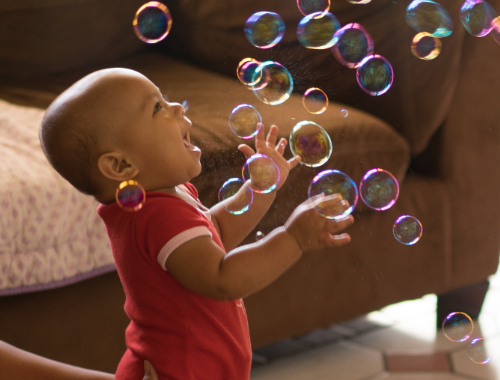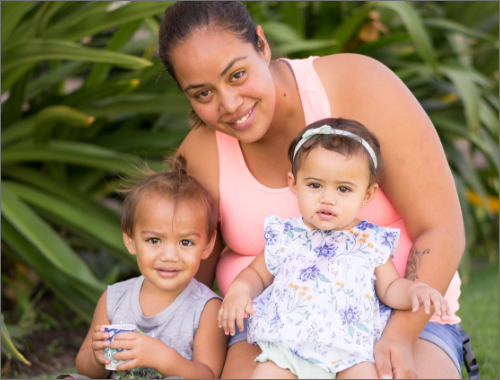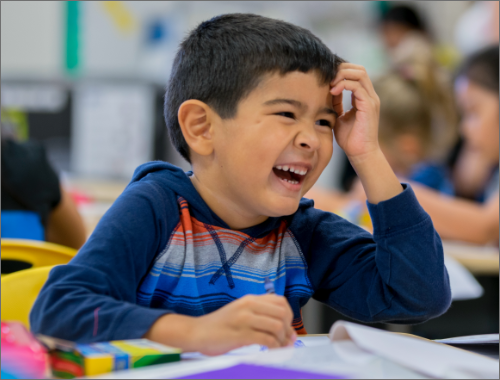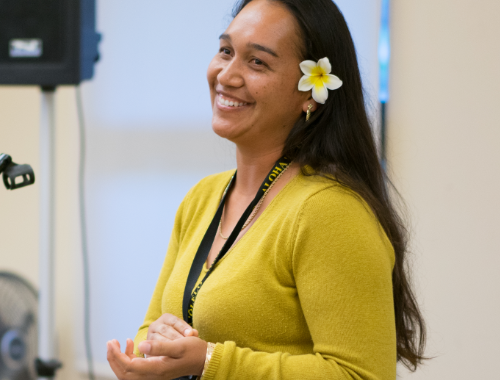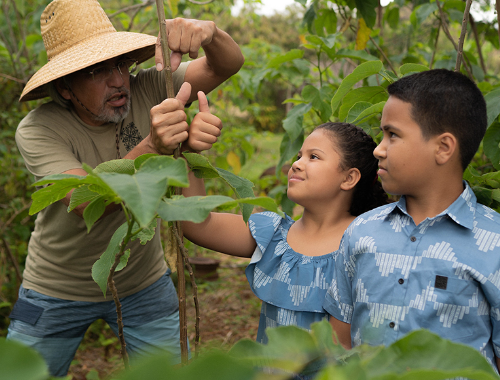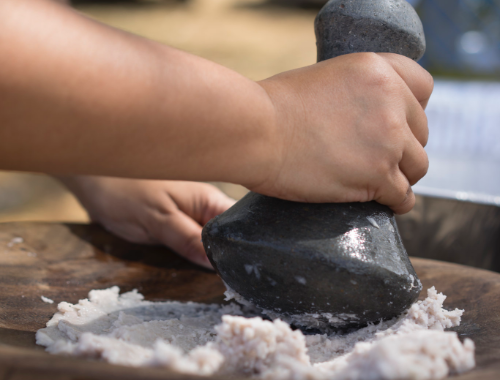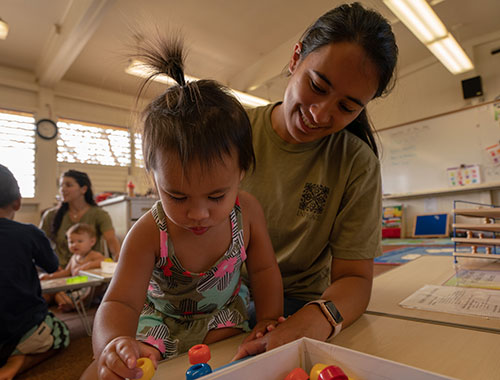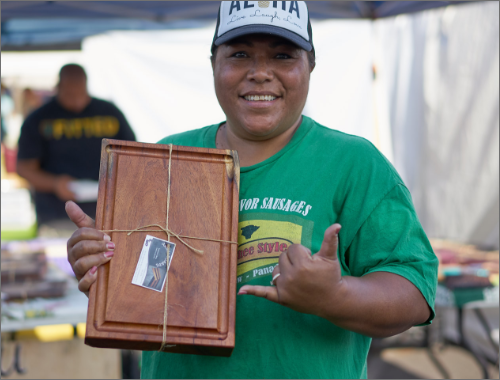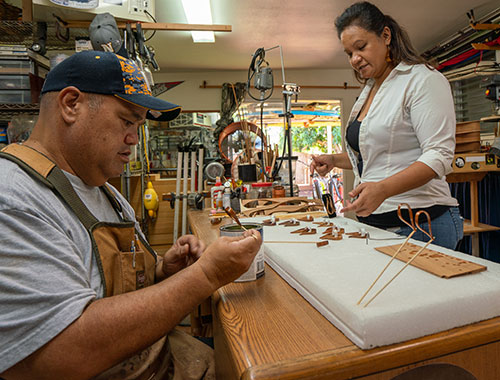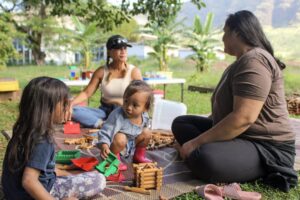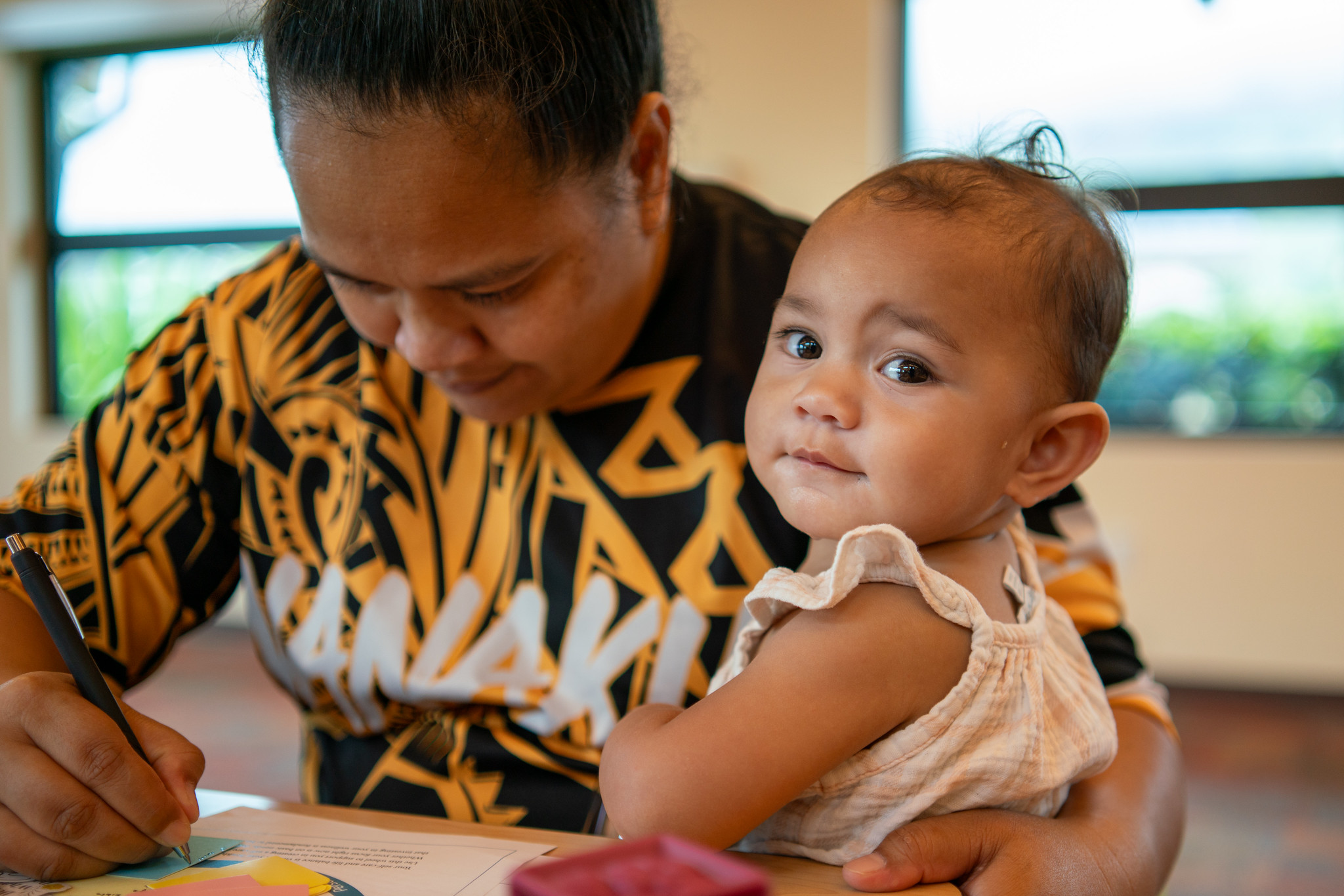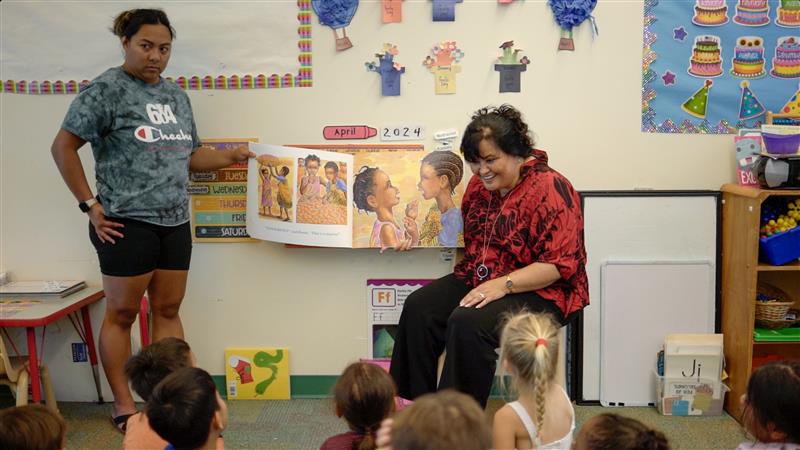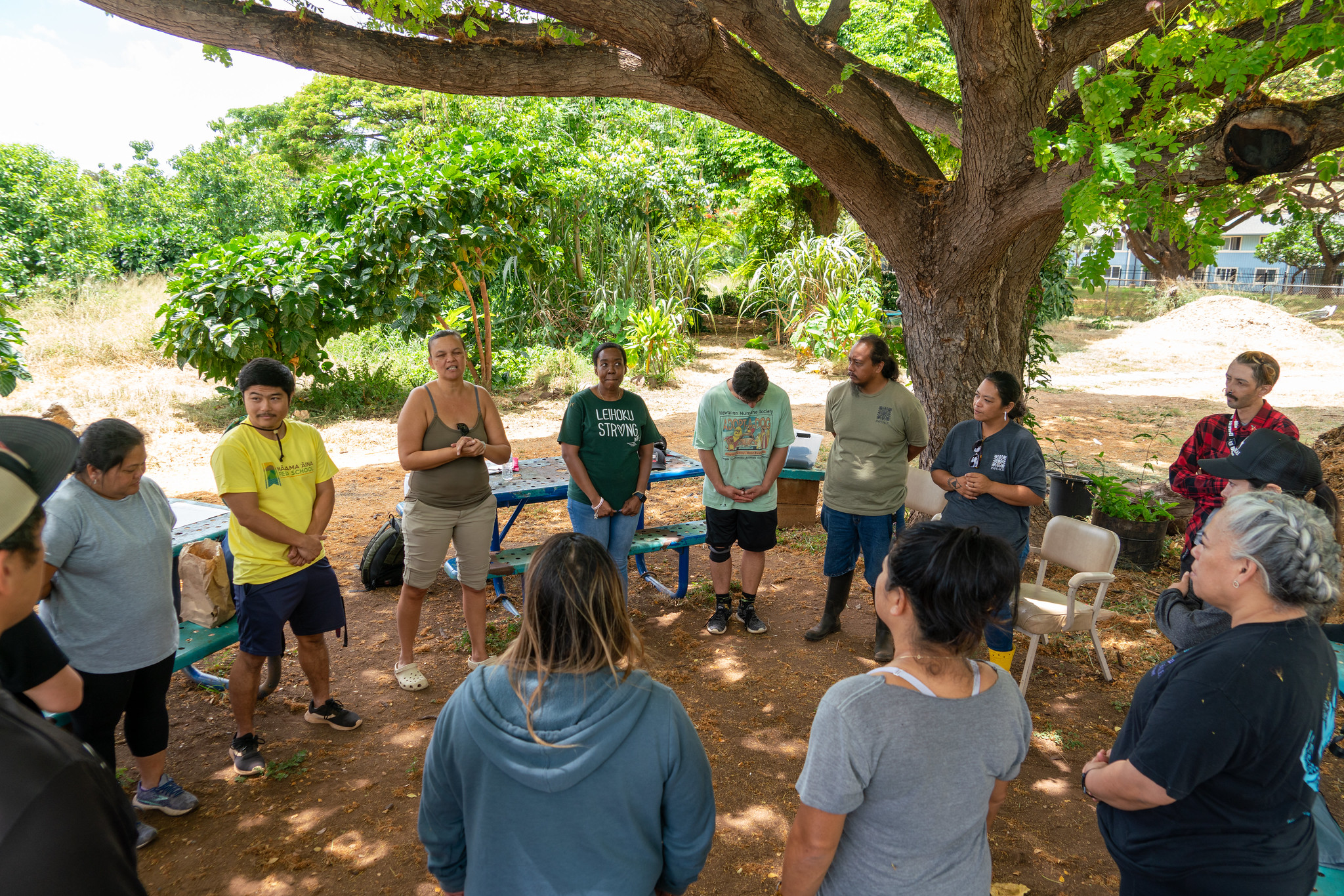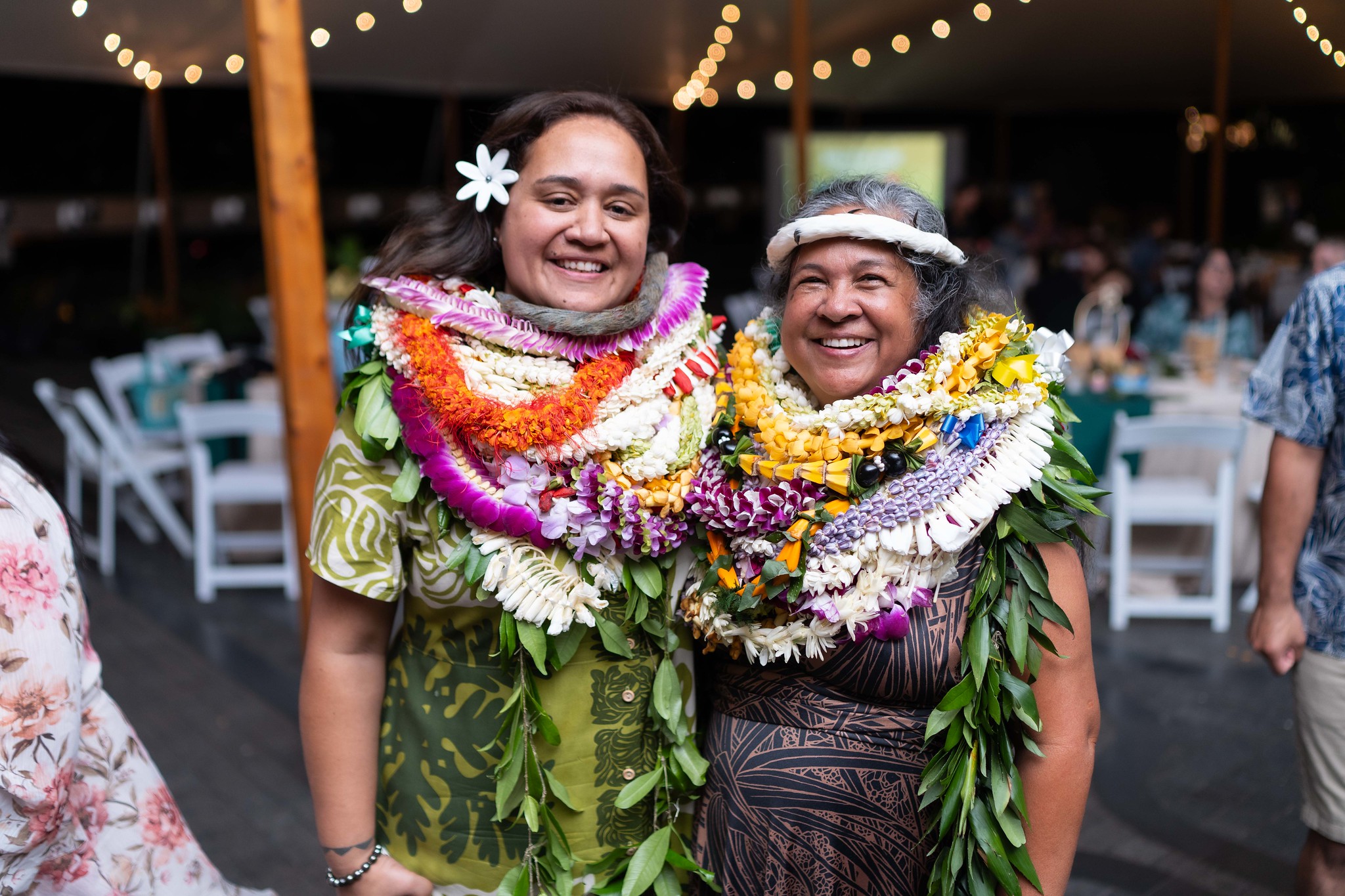The following in an excerpt from the March 9, 20232 Honolulu Civil Beat article written by Jackie Mader
Our Native Hawaiian population really continues to hold a cultural value of their child being raised at home with their families instead of in an “institutional, educational kind of setting” for young children.
Maile Keliʻipio-Acoba, INPEACE Chief Executive Officer
Four days a week, teachers from Keiki Steps fan out across the islands to set up makeshift classrooms in nine communities. On a recent morning in Waianae, on a farm tucked away on the edge of Makaha Valley, a half-dozen families roamed around activity centers under a lush canopy of macadamia nut, jackfruit and ulu trees.
On the edge of the large, outdoor classroom, Dee Kila crouched down next to her 2-year-old granddaughter, Hi’iaka, at a painting station.
“Can you say blue?” she asked as Hi’iaka picked up a paintbrush and smeared turquoise paint on a piece of cardboard depicting Hawaiian goddess Pele’s journey home.
“Dab, dab, dab,” Kila said as her granddaughter dipped her paintbrush in more paint. Kila gently put her hand over Hi’iaka’s hand and moved it back and forth, showing her how to create long strokes that resembled waves.
“Nice job, high five!” she said, high fiving the toddler.
Kila watches Hi’iaka and her 1-year-old brother five days a week, from 7 a.m. to 4:30 p.m., for free. “It’s very exhausting,” Kila said. “I am underpaid,” she added, laughing. Kila said her grandchildren are benefiting from the activities, songs and books at Keiki Steps. But the program has helped her, too. In addition to her grandchildren, Kila also cares for her 81-year-old mother, a combination Kila said can be overwhelming.
The biggest change she’s noticed since she started coming to Keiki Steps is in herself. Having a place to bring the children to learn and socialize with others, where she can also learn about child development and interact with other caregivers, has been helpful, Kila said, especially since no such programs existed in her community when she was a young mom learning how to be a caregiver.
“It’s made me more calm, and taught me how to be more patient,” she said. “Now that I’m caregiving, I’m like, I gotta go to Keiki Steps, so I can learn.”
Read the full article at Informal Caregivers Are Propping Up Hawaii’s Child Care Industry With Little Support – Honolulu Civil Beat

